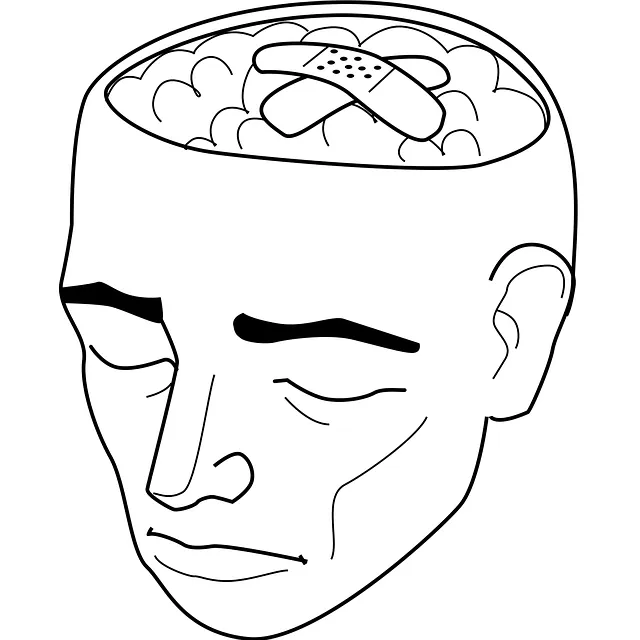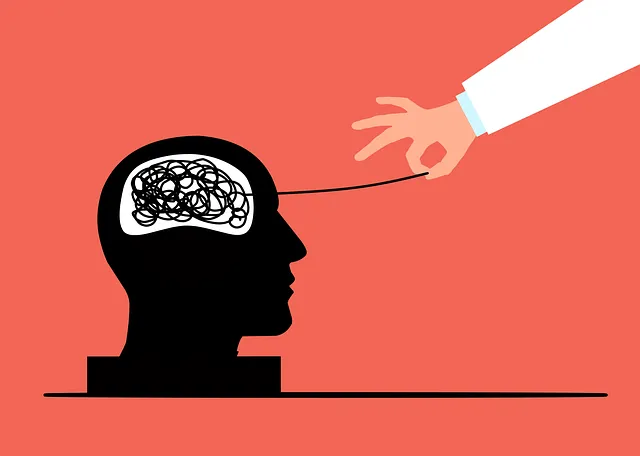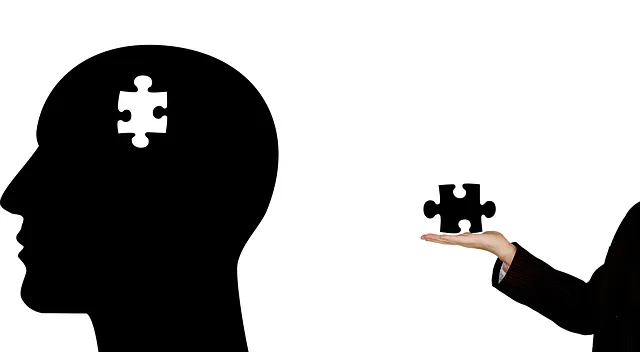The Highlands Ranch Kaiser Permanente Behavioral Health Center offers peer-supported group sessions for holistic mental wellness care. Facilitators create safe, inclusive environments with cultural sensitivity, promoting open dialogue and personalized coping strategies like mindfulness meditation. Their approach improves mental health outcomes, reduces stigma, and fosters community support through evidence-based practices and regular evaluations.
Mental wellness group facilitation plays a pivotal role in fostering healing and connection at Highlands Ranch Kaiser Permanente Behavioral Health Center. This article delves into the art and science of facilitating these groups, exploring key techniques that create safe, supportive environments. We examine the crucial role facilitators play in empowering participants on their recovery journeys, and offer strategies to measure the significant impact of such programs. By understanding best practices at Highlands Ranch Kaiser Permanente, professionals can enhance mental health support through group facilitation.
- Understanding Mental Wellness Group Facilitation at Highlands Ranch Kaiser Permanente Behavioral Health Center
- The Role of a Group Facilitator in Promoting Healing and Connection
- Techniques for Creating a Safe and Supportive Group Environment
- Strategies to Engage and Empower Participants in Their Recovery Journey
- Measuring Success: Evaluating the Impact of Mental Wellness Group Facilitation Programs
Understanding Mental Wellness Group Facilitation at Highlands Ranch Kaiser Permanente Behavioral Health Center

At Highlands Ranch Kaiser Permanente Behavioral Health Center, understanding mental wellness group facilitation is key to providing comprehensive care. The center recognizes the power of peer support and community in enhancing individual recovery. Group sessions are carefully designed to foster a safe, inclusive environment where members can share experiences, learn from one another, and develop coping strategies.
Through these groups, professionals facilitate open dialogue, encouraging active participation and self-reflection. Topics often include depression prevention, stress management, and building resilient self-care routines—essential aspects of risk management planning for mental health professionals. The center’s approach emphasizes the importance of group dynamics in promoting better mental health outcomes, reflecting a holistic view of patient care.
The Role of a Group Facilitator in Promoting Healing and Connection

In the nurturing environment of the Highlands Ranch Kaiser Permanente behavioral health center, group facilitators play a pivotal role in promoting healing and connection among participants. These professionals are adept at creating safe spaces where individuals can share their experiences, fostering an atmosphere of empathy and understanding. Through careful orchestration of discussions, activities, and exercises, they guide the group towards meaningful interactions that enhance social skills and encourage open communication.
Group facilitation techniques, such as incorporating Mindfulness Meditation practices or tailoring Healthcare Provider Cultural Competency Training to address diverse backgrounds, enable facilitators to cater to the unique needs of each member. This personalized approach not only improves mental wellness but also strengthens interpersonal bonds. By facilitating these connections, group leaders contribute significantly to the overall well-being and support system of those seeking help at the Highlands Ranch Kaiser Permanente behavioral health center.
Techniques for Creating a Safe and Supportive Group Environment

Creating a safe and supportive group environment is paramount for effective mental wellness facilitation at the Highlands Ranch Kaiser Permanente behavioral health center. Techniques such as establishing clear ground rules, ensuring confidentiality, and fostering open communication help participants feel secure to share their experiences. Group leaders should encourage active participation by creating a non-judgmental space where diverse perspectives are valued, aligning with principles of Cultural Sensitivity in Mental Healthcare Practice.
Additionally, incorporating crisis intervention guidance and mindfulness meditation practices can significantly enhance the group’s overall well-being. These techniques not only promote emotional regulation but also foster a sense of community, enabling participants to support one another through shared experiences. By implementing these strategies, the Highlands Ranch Kaiser Permanente behavioral health center ensures that its mental wellness groups provide a nurturing environment conducive to healing and growth.
Strategies to Engage and Empower Participants in Their Recovery Journey

Facilitating a mental wellness group at the Highlands Ranch Kaiser Permanente behavioral health center requires engaging strategies that empower participants on their recovery journey. One effective approach is creating a safe, inclusive environment that reflects Cultural Sensitivity in Mental Healthcare Practice. Recognizing and valuing diverse cultural backgrounds fosters trust and encourages open dialogue. Incorporating culturally relevant activities and discussion topics can help individuals feel seen and heard, strengthening their sense of belonging.
Additionally, incorporating techniques like trauma-informed care and focusing on Self-Esteem Improvement can be transformative. Trained facilitators can guide participants in processing traumatic experiences while also encouraging self-reflection and positive affirmations. These practices not only address underlying issues but also equip individuals with tools to navigate their mental health challenges effectively, ultimately enhancing their overall well-being.
Measuring Success: Evaluating the Impact of Mental Wellness Group Facilitation Programs

Evaluating the success and impact of mental wellness group facilitation programs is a crucial step in ensuring their effectiveness and long-lasting benefits. At the Highlands Ranch Kaiser Permanente behavioral health center, professionals employ various methods to measure success beyond simple attendance or satisfaction rates. They analyze the tangible improvements in participants’ mental health, such as reduced symptoms of anxiety and depression, enhanced coping strategies, and better overall well-being.
This evaluation process often involves pre- and post-program assessments, where individuals are asked to complete standardized questionnaires designed to gauge their mental health status. Additionally, qualitative feedback from group members through surveys or interviews provides valuable insights into the program’s impact on their personal journeys. These methods help in understanding how these groups contribute to Mental Wellness Podcast Series Production by fostering a sense of community and reducing the stigma associated with mental illness, ultimately enhancing the overall mental wellness landscape.
Mental wellness group facilitation at Highlands Ranch Kaiser Permanente Behavioral Health Center has proven to be a powerful tool for healing and connection. By employing techniques that create safe spaces, engage participants actively in their recovery journeys, and measure the impact of these programs, facilitators can significantly enhance mental health outcomes. The role of a skilled facilitator is pivotal, fostering an environment where individuals feel empowered to navigate their challenges together. These strategies not only support individual growth but also contribute to a vibrant tapestry of community within the group.




